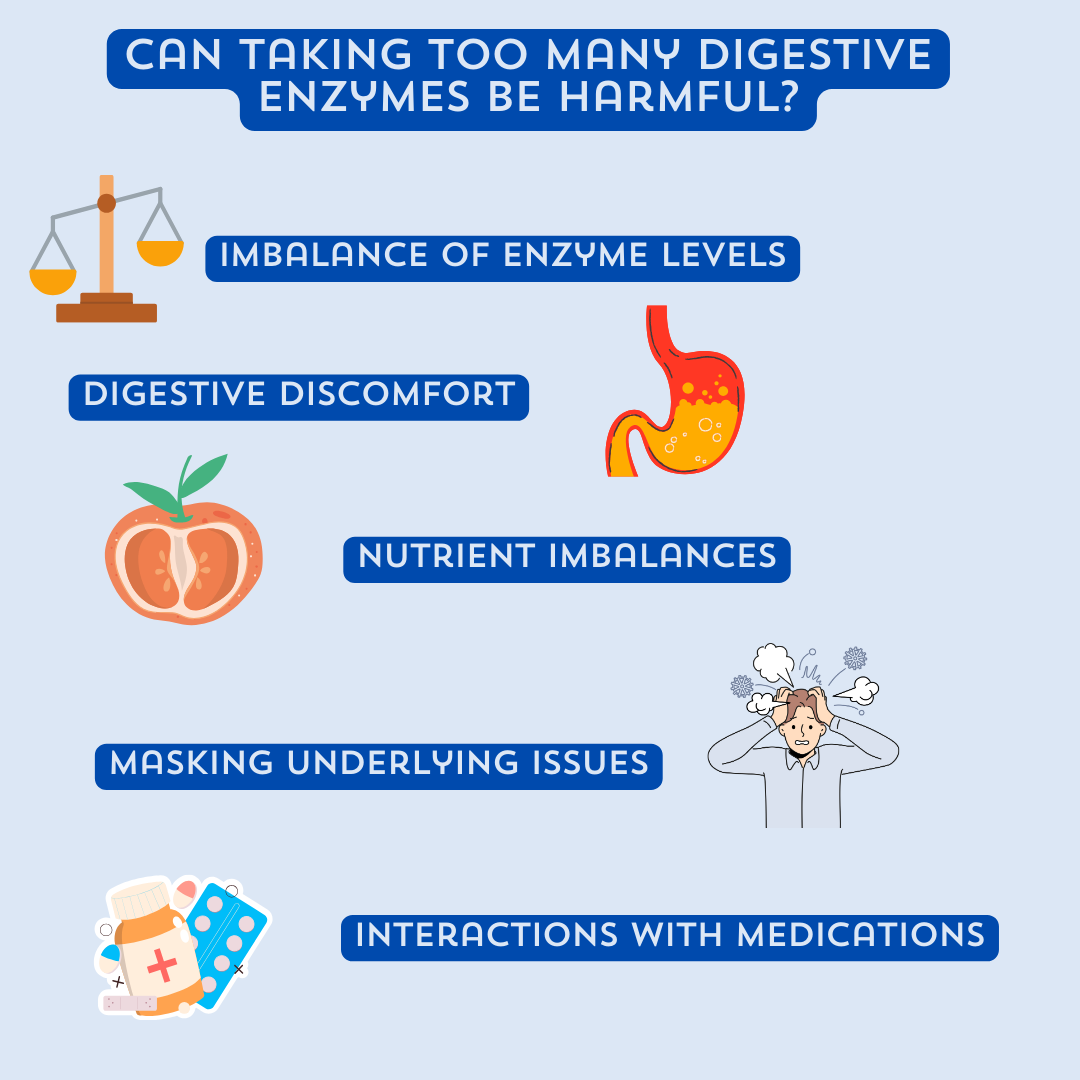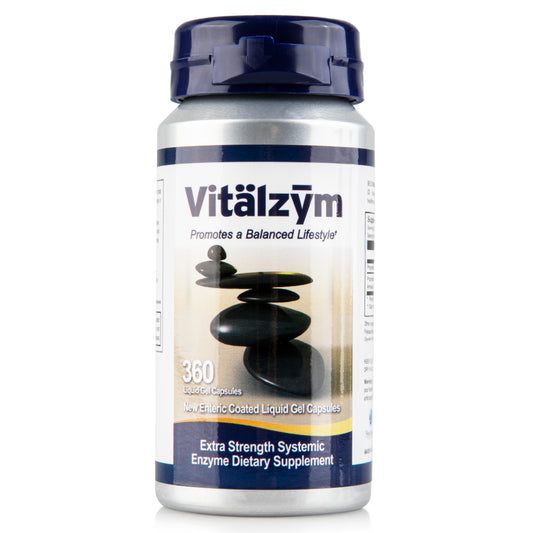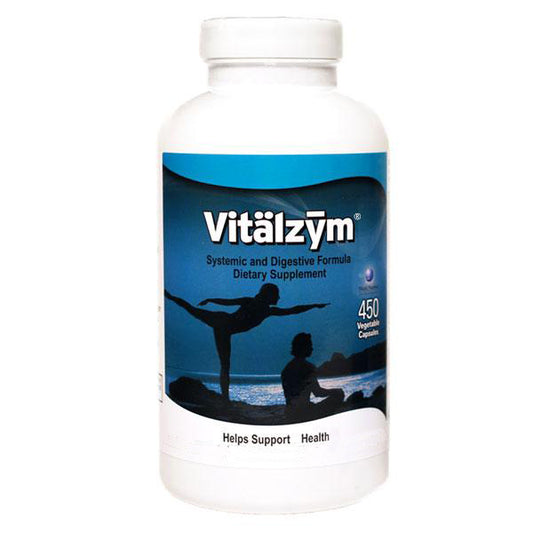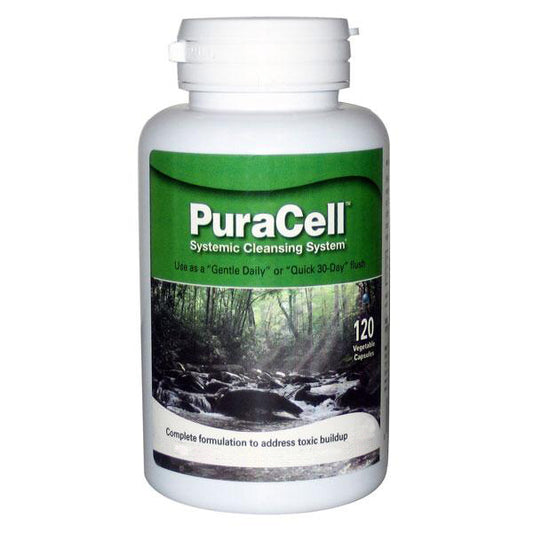Are you seeking to optimize your digestive health and wondering about the right dosage of digestive enzymes? In this authoritative article, we will discuss how many digestive enzymes you can take per day. Whether dealing with occasional digestive discomfort or aiming to enhance your overall well-being, understanding the correct dosage is crucial. Join us as we break down the science behind digestive enzymes and provide you with practical dosage guidelines to support your digestive system's natural processes.
Why Enzymes Supplement Dosage Matters
Determining the right dosage of digestive enzyme supplements is crucial for maximizing their benefits and ensuring optimal digestive health. Taking too little may not provide the desired effects while taking too much can potentially lead to unwanted side effects. The appropriate dosage depends on various factors, including the specific enzyme formulation, individual needs, and the severity of digestive issues. It is important to follow recommended daily dosage guidelines provided by healthcare professionals or the product manufacturer. By understanding and adhering to the correct dosage, individuals can effectively support their digestive system, improve nutrient absorption, and promote overall well-being.
How To Determine The Right Enzymes Dosage
Factors to Consider for Digestive Enzyme Dosage
- Specific Enzyme Formulation: Different enzyme formulations may have varying recommended dosages. It is important to read the product label or consult with a healthcare professional to understand the appropriate dosage for the specific enzyme supplement you are taking.
- Individual Needs: The dosage of digestive enzymes can vary based on individual factors such as age, weight, overall health, and the severity of digestive issues. Consulting with a healthcare professional can help determine the right dosage tailored to your specific needs.
- Severity of Digestive Issues: The severity of digestive issues can also impact the dosage of digestive enzymes. Individuals with more severe digestive problems may require higher dosages, while those with mild symptoms may need lower dosages.
Recommended Dosage Guidelines
- Start with a Low Dosage: It is generally recommended to start with a lower dosage and gradually increase if needed. This allows your body to adjust to the enzymes and helps determine the optimal dosage for your individual needs.
- Follow Product Instructions: Carefully read and follow the dosage instructions provided by the product manufacturer. These instructions are typically based on the specific formulation and intended usage of the digestive enzyme supplement.
- Consult with a Healthcare Professional: If you are unsure about the appropriate dosage or have specific health concerns, it is advisable to consult with a healthcare professional. They can provide personalized guidance based on your unique circumstances.
Adjusting Dosage Based on Individual Needs
- Monitor Your Symptoms: Pay attention to how your body responds to the initial dosage of digestive enzymes. If you experience improvements in digestion and reduced symptoms, the dosage may be appropriate. However, if you do not notice any changes or still experience digestive issues, it may be necessary to adjust the dosage.
- Gradually Increase if Needed: If the initial dosage does not provide the desired results, you can gradually increase the dosage under the guidance of a healthcare professional. It is important to monitor your body's response and make adjustments accordingly.
- Avoid Exceeding Recommended Dosage: While it may be tempting to take higher doses for faster results, exceeding the recommended dosage may not necessarily provide additional benefits and could potentially lead to adverse effects. It is crucial to follow the recommended dosage guidelines to ensure safety and effectiveness.
How Many Digestive Enzymes Can I Take a Day?
The number of digestive enzymes you can take in a day depends on several factors, including the specific enzyme formulation, your individual needs, and the severity of your digestive issues. It is recommended to follow the dosage guidelines provided by healthcare professionals or the product manufacturer. Generally, starting with a lower dosage and gradually increasing it as needed is a good approach. However, it is important to note that exceeding the recommended dosage may not necessarily lead to better results and could potentially cause adverse effects. Consulting with a healthcare professional can help determine the appropriate number of digestive enzymes to take daily for your specific situation.
What Are the Key Digestive Enzymes: Lipase, Protease, and Amylase?
Lipase:
- Lipase is a digestive enzyme responsible for breaking down fats (lipids/lipase) into smaller molecules called fatty acids and glycerol.
- It is produced primarily in the pancreas and released into the small intestine to aid in the digestion and absorption of dietary fats.
- Lipase plays a crucial role in ensuring the proper breakdown and utilization of fats, which are essential for the absorption of fat-soluble vitamins and the production of energy.
Protease:
- Protease is a group of enzymes that are involved in the breakdown of proteins into smaller peptides and amino acids.
- These enzymes are produced in various parts of the body, including the stomach, pancreas, and small intestine.
- Protease enzymes help to break down dietary proteins into their building blocks, which can then be absorbed and utilized by the body for various functions such as tissue repair, enzyme production, and hormone synthesis.
Amylase:
- Amylase is an enzyme responsible for the digestion of carbohydrates, specifically starches and complex sugars.
- It is produced in the salivary glands and pancreas and is released into the mouth and small intestine.
- Amylase breaks down complex carbohydrates into simpler sugars like glucose, which can be easily absorbed by the body for energy production.
Understanding the roles of lipase, protease, and amylase is essential for comprehending the digestive process and the breakdown of different macronutrients in the body. These enzymes work together to ensure the efficient digestion and absorption of fats, proteins, and carbohydrates, supporting overall digestive health and nutrient utilization.
Can You Take Digestive Enzymes Multiple Times a Day?
Yes, it is generally safe to take digestive enzyme supplements multiple times a day, depending on your individual needs and the specific product instructions. Some individuals may find it beneficial to take smaller doses of digestive enzymes with each meal, while others may prefer taking a larger dose once or twice a day. Splitting the dosage throughout the day can help ensure a steady supply of enzymes to support digestion. However, it is important to follow the recommended dosage guidelines provided by the supplement manufacturer or healthcare professional. Taking digestive enzymes multiple times a day can help optimize their effectiveness and support your digestive health goals.
Can Taking Too Many Digestive Enzymes Be Harmful?
Taking excessive amounts of digestive enzymes can potentially have negative effects on your health. Here are some reasons why taking too many digestive enzymes can be harmful:
- Imbalance of Enzyme Levels: Excessive intake of digestive enzymes can disrupt the natural balance of enzymes in your digestive system. This can lead to an over-reliance on supplemental enzymes and a decrease in the production of endogenous enzymes by your body.
- Digestive Discomfort: Taking an excessive amount of digestive enzymes can cause digestive discomfort such as bloating, gas, diarrhea, nausea, or stomach cramps. This is especially true if your body is not accustomed to high enzyme levels.
- Nutrient Imbalances: Digestive enzymes help break down food and facilitate nutrient absorption. However, taking too many enzymes can lead to an imbalance in nutrient absorption, potentially causing deficiencies or excesses of certain nutrients.
- Masking Underlying Issues: Relying heavily on digestive enzyme supplements without addressing the root cause of digestive issues can mask underlying health conditions. It is important to consult with a healthcare professional to identify and address the underlying cause of digestive problems.
- Interactions with Medications: Excessive intake of digestive enzymes can potentially interact with certain medications, affecting their absorption or effectiveness. It is crucial to consult with a healthcare professional before taking high doses of digestive enzymes, especially if you are on medication.
To ensure safety and effectiveness, it is recommended to follow the recommended dosage guidelines provided by healthcare professionals or the product manufacturer. Consulting with a healthcare professional can help determine the appropriate amount of digestive enzymes to take based on your individual needs and health condition.

What Happens To Your Body When You Start Taking Digestive Enzymes?
When you start taking digestive enzymes, several positive changes can occur in your body. Firstly, these enzymes help break down food more efficiently, aiding in the digestion and absorption of nutrients. This can lead to improved nutrient availability, which may enhance overall health and well-being.
Additionally, digestive enzymes can alleviate common digestive issues such as bloating, gas, and indigestion by assisting in the breakdown of complex carbohydrates, proteins, and fats. As a result, you may experience reduced discomfort and improved digestive function. Moreover, taking digestive enzymes can support a healthy gut environment by promoting the growth of beneficial gut bacteria.
This can contribute to better digestion, nutrient absorption, and immune function. Overall, incorporating digestive enzymes into your routine can help optimize your digestive health and enhance your body's ability to efficiently process and utilize nutrients from the foods you consume.
How Many Digestive Enzymes Can I Take a Day If I Am Lactose Intolerance?
If you have lactose intolerance and are considering taking digestive enzymes to aid in the digestion of lactose, it is important to follow the recommended dosage guidelines provided by healthcare professionals or the product manufacturer. The appropriate number of digestive enzymes to take in a day will depend on the severity of your lactose intolerance and the specific enzyme formulation you are using. It is advisable to start with a lower dosage and gradually increase if needed, while monitoring your body's response. Consulting with a healthcare professional can provide personalized guidance and help determine the optimal dosage of digestive enzymes to manage lactose intolerance symptoms effectively.
Does Digestive Enzymes Speed Up Metabolism?
Digestive enzymes themselves do not directly speed up metabolism. While digestive enzymes play a crucial role in breaking down food and facilitating nutrient absorption, their primary function is to aid in digestion rather than directly influencing metabolism. Metabolism refers to the complex biochemical processes that occur in the body to convert food into energy. While proper digestion is important for overall metabolic health, factors such as genetics, physical activity, and overall diet composition have a more significant impact on metabolism. However, by supporting efficient digestion and nutrient absorption, digestive enzymes indirectly contribute to overall metabolic function and can help optimize nutrient utilization for energy production and other metabolic processes.
Should I Take Digestive Enzymes Before or After My Meals?
The timing of when to take digestive enzymes can vary depending on individual preferences and the specific product instructions. However, a common recommendation is to take digestive enzymes shortly before or at the beginning of a meal. By taking them before or at the start of a meal, the enzymes can be present in the digestive system when food enters, aiding in the breakdown of nutrients. This can help optimize digestion and nutrient absorption. However, it is important to follow the recommended dosage and instructions provided by the product manufacturer or healthcare professional. Consulting with a healthcare professional can provide personalized guidance on the best timing for taking digestive enzymes based on your specific digestive health needs.
Conclusion
In conclusion, understanding the dosage guidelines and benefits of digestive enzymes is crucial for individuals seeking to optimize their digestive health. By considering factors such as specific enzyme formulations, individual needs, and the severity of digestive issues, one can determine the right dosage for their unique circumstances. Following recommended dosage guidelines, starting with a lower dosage and gradually increasing if necessary, and consulting with healthcare professionals can help ensure safe and effective use of digestive enzymes. Incorporating digestive enzymes into a daily routine can aid in the breakdown and absorption of nutrients, alleviate digestive discomfort, and support overall digestive well-being. By harnessing the power of key digestive enzymes such as lipase, protease, and amylase, individuals can take proactive steps towards maintaining optimal digestive health and enhancing their overall wellness.
Final Thoughts
Step into vitality with Vitalzym Extra Strength. World Nutrition’s innovative formula includes papain from papaya to help replenish enzymes, boost immunity, enhance post-workout recovery, and promote better circulation. Packed with serrapeptase and bromelain, Vitalzym offers a healthier, more energetic lifestyle. Experience the change with Vitalzym today.*
Sources
- https://www.linkedin.com/pulse/how-do-you-figure-out-right-supplement-dosage-igor-klibanov
- https://www.fda.gov/food/nutrition-facts-label/how-understand-and-use-nutrition-facts-label
- https://en.wikipedia.org/wiki/Lipase
- https://en.wikipedia.org/wiki/Protease
- https://en.wikipedia.org/wiki/Amylase
- https://medium.com/@pacosw/how-im-helping-my-stomach-heal-with-digestive-enzymes-da289bc95f00
- https://get2theroot.com/top-10-causes-of-nutritional-imbalance/
These statements have not been evaluated by the food and drug administration (FDA). These products are not intended to diagnose, treat, cure, or prevent any disease.
In a recent Federal District Court case involving World Nutrition and AST Enzymes, the Judge found that the serrapeptase in AST products Serracor NK, Excellacor, Serrapeptase and Ultimate Metabolic Formula were only able to retain 27% of its enzyme activity after exposure to the stomach acid and that 73% of the serrapeptase will be degraded by the time it reaches the intestines.






